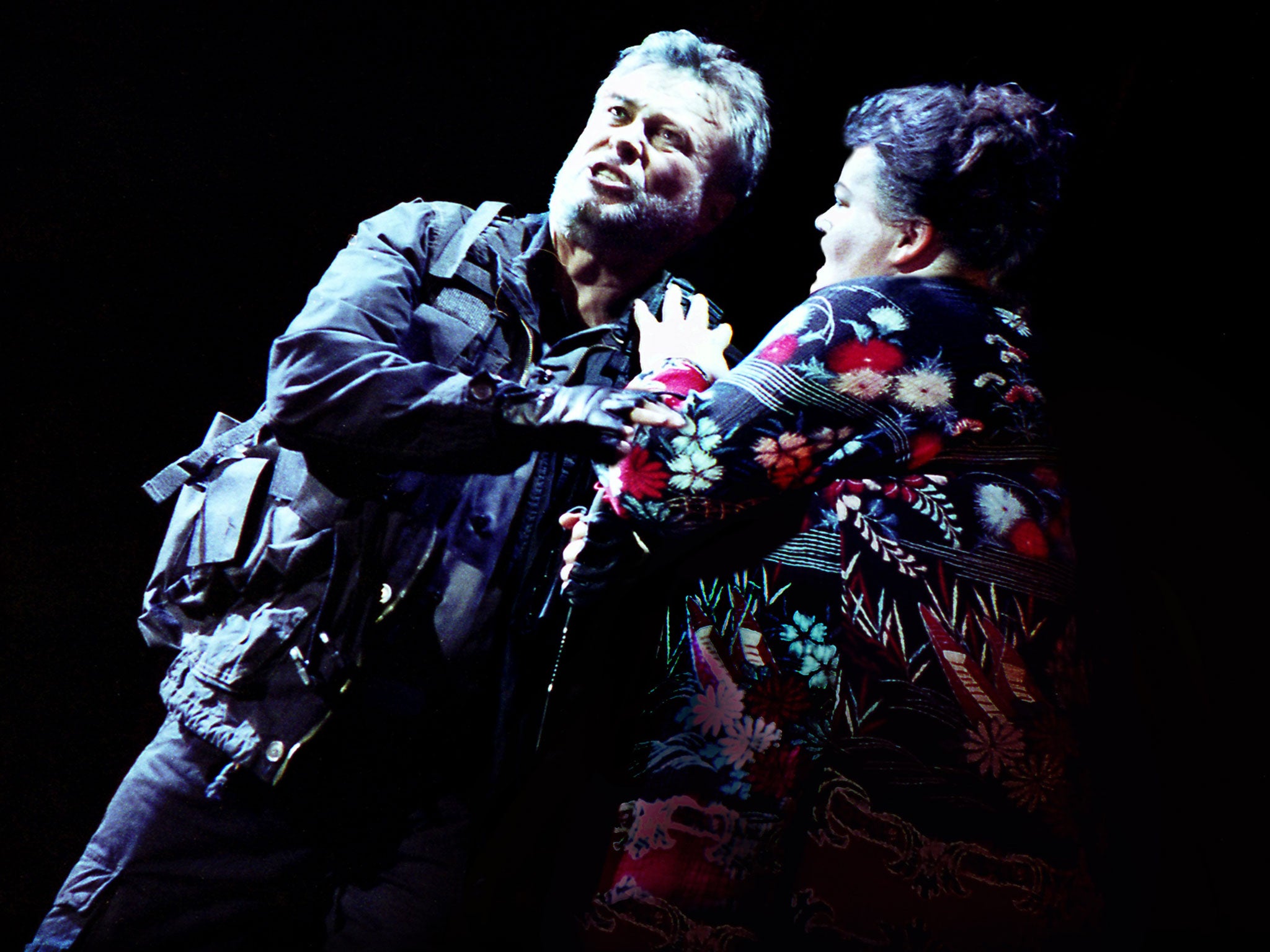Classical review: Macbeth - a community musters a skirling roar against a Scottish king

Your support helps us to tell the story
From reproductive rights to climate change to Big Tech, The Independent is on the ground when the story is developing. Whether it's investigating the financials of Elon Musk's pro-Trump PAC or producing our latest documentary, 'The A Word', which shines a light on the American women fighting for reproductive rights, we know how important it is to parse out the facts from the messaging.
At such a critical moment in US history, we need reporters on the ground. Your donation allows us to keep sending journalists to speak to both sides of the story.
The Independent is trusted by Americans across the entire political spectrum. And unlike many other quality news outlets, we choose not to lock Americans out of our reporting and analysis with paywalls. We believe quality journalism should be available to everyone, paid for by those who can afford it.
Your support makes all the difference.There is no entry in the Oxford Dictionary of National Biography for William Webster the younger, founder of the Blackheath Halls, Blackheath Conservatoire and now defunct Blackheath College of Art.
There is no entry for his father, the engineer who was apprenticed as a boy to a Lincolnshire builder and went on to build the Dissenters’ Chapel in Hither Green Cemetery, the pumping house in Erith, and the Albert and Chelsea Embankments. The history of Victorian London is full of men like the two Williams; grafters and givers, believers in betterment through sanitation and art. Built for local people, on local money, Blackheath Halls continues its mission, with one particular project at its core: the annual community opera.
Webster and Webster might be shocked by the gore in Christopher Rolls’s production of Verdi’s Macbeth, but they would admire the resilience and thrift of the Blackheath community. In the foyer, storyboards from four primary schools trace the antihero’s bloody career. Inside the hall, pupils from the same schools freeze in a trance at the scalding incantations of the witches, their piping voices lending a crisp edge to Jeremy Sams’s translation. From pipsqueak to pensioner, chorus and orchestra are conducted without compromise by Nicholas Jenkins. The a capella ensembles are electric with energy, the tuttis a skirling roar.
Alongside the great set pieces of brindisi and bloodbath, Verdi’s Macbeth is a portrait of a marriage. Oliver Townsend’s spare, simple designs –a long path of blue carpet, a circular dais surrounded by sharpened staffs, a scarlet camouflage dropcloth – and Mark Howland’s careful lighting ensure that our attention is kept on Macbeth (Quentin Hayes) and his scolding, smooching wife (Miriam Murphy). The dynamic is fascinating. Hayes’s Macbeth is neat and meticulous; a disciplined soldier whose alienation is revealed in the blink-and-you’ll-miss-it training of his machine-gun on Banquo’s back in the first scene. A formidable woman with a formidable voice, Murphy conjures shades of mood and madness with a graceful tilt of a finger or the balletic turn of a wrist. From Charne Rochford’s guileless Macduff to student Susanna Buckle’s gentle Lady in Waiting, Matthew Rose’s towering, glowering Banquo, the grimiest blurt of amateur trombones and the sweet voices of the children, Blackheath should be proud.
On the far side of the Thames, Nicholas Collon and the Aurora Orchestra described another great river in their City of London Festival performance of Charles Ives’s Three Places in New England. So soft and deep were the greens in “The Housatonic at Stockbridge” that I thought for a moment that it might be the loveliest playing I had heard. This was thoughtful, original programming, from Jane Mitchell’s rhapsodic evocation of Debussy’s Syrinx to the spectral haze of Boulez’s Mémoriale and Jon Frank’s specially commissioned video accompaniment to the Ives; its wry counterpoint of modern-day Bostonians and the heavy grandeur of the city’s memorial to the 54th Massachusetts Volunteer Infantry (the first African-American soldiers to fight in the Civil War) perfectly tailored to Ives’s kaleidoscope of civic jubilation and private dreams. The bliss did not last. Collon and Aurora are too young to get away with wearing Beethoven’s Seventh Symphony so casually, like a favourite sweater. Perhaps they were tired?
Key players from the ensemble were integral to Frederick Wake-Walker’s staging of Britten’s The Prodigal Son with Mahogany Opera in Southwark Cathedral. Here Roger Vignoles directed Aurora from the organ, with bold and beautiful playing from principal viola Max Baillie and flautist Alex Jakeman. Tenors John McMunn and James Gilchrist mesmerised as the Younger Son and the Abbot/Tempter. The boy trebles giggled, as trebles often do.
NEXT WEEK Pia Furtado’s Holland Park production of L’elisir d’amore
Critic's choice
Today in France it’s Bastille Day, and at the Proms François-Xavier Roth and period instrumentalists Les Siècles explore French ballet music from Le bourgeois gentilhomme to The Rite of Spring at the Royal Albert Hall, (Sunday night). At the same venue Thomas Adès conducts Christianne Stotijn, Simon Keenlyside and the BBC SO in the premiere of his Totentanz (Wed).

Join our commenting forum
Join thought-provoking conversations, follow other Independent readers and see their replies
Comments